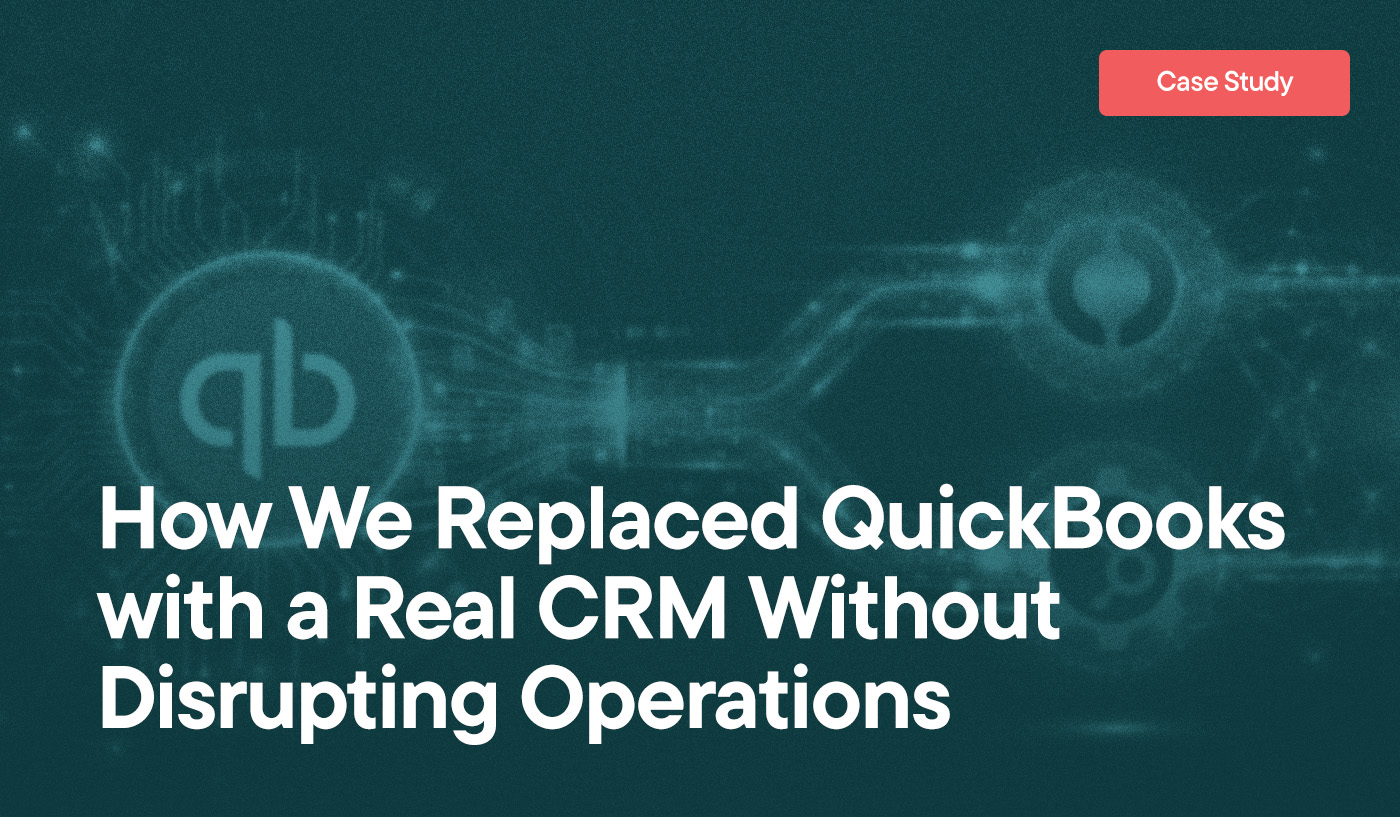Is your current marketing technology holding you back? Are you feeling frustrated with the limitations of current tools and processes? Wondering about the potential generative artificial intelligence (AI) opens up for your marketing team?
Well, then it may be time to consider investing in new marketing technology that can propel your business forward.
Let’s consider the signs it’s time for a change and how to effectively evaluate your marketing tech stack needs.
Signs That It’s Time to Invest in New Marketing Technology
Decreased Efficiency & Productivity
The time-consuming nature of manual marketing processes can significantly hinder your team’s productivity and efficiency. If it takes your team longer to complete tasks than you anticipate, it could be due to outmoded marketing tech, or, perhaps, you may be utilizing content marketing tools that are not well suited for your business needs.
Outdated marketing tools and manual procedures can take up valuable time and resources, putting stress on operations and limiting efforts related to strategic initiatives.
Here are just some of the few benefits associated with modernizing your tech stack:
- Automate time-consuming tasks and streamline operations
- Free up your team’s time to focus on more important aspects of your marketing strategy.
As an example, HubSpot’s marketing platform bakes automation into most of its features.
Reflecting on how the industry-leading platform has optimized marketing processes, Hypha HubSpot Development Account Director Joe Whearty is quick to mention its workflow capabilities.
“Workflows allow my clients to automate a wide variety of their marketing processes that might have otherwise been done manually,” he says. “HubSpot workflow builder is also flexible enough to handle even the most complicated decision trees, so that every action can have an appropriate and timely reaction, from sending confirmation emails, to updating contact owners, to sending out special offers.”
Whearty also finds customers benefit greatly from HubSpot’s “powerful” lead scoring tool.
“It automates a lot of the thinking that a human used to have to do to determine the strength of a lead,” he adds. “Like most other HubSpot tools, it’s also highly customizable, giving users the ability to assign the right value to each action a lead might take. Letting the tool do the thinking from there saves a lot of time and ensures no qualified lead is missed.”
Failure to Scale & Meet Growing Demands
As your business expands, your marketing needs ought to evolve, as well. And sometimes that means you’ve outgrown your tech stack—which is completely fine.
The inability to scale or meet novel demands is a common challenge faced by businesses as they mature. If your current marketing technology is not equipped to handle the nascent demands of your customer base, it can lead to bottlenecks and inefficiencies.
Customer expectations and needs are shifting all the time.
Forcing your marketing team to contort your current tech stack to achieve what they want is another impediment to growth and customer satisfaction.
“It’s crucial to use the tools as they’re intended to be used, with some flexibility, of course,” explains Dillon Friday, an account director at Hypha HubSpot Development. “I’ve seen clients who set out a goal and a plan for achieving that goal without considering what capabilities they have in their tech stack.”
If you believe your marketing tech is preventing you from keeping up with your competitors, or failing to support your growing business, it’s probably time for a change.
“If a tool isn’t delivering as expected, or if there are unmet needs within your marketing operations, that signals it’s time to consider new solutions.”
Inability to Personalize & Tailor Marketing Efforts
Customers today expect personalized experiences. That’s the only way your brand will cut through noisy competitors’ voices.
So, if your present marketing tools lack the ability to easily segment audiences and provide tailored messages, you’re missing out on valuable opportunities. Transitioning to new marketing tech that offers robust personalization can revolutionize your marketing efforts and help you create targeted campaigns that resonate with your audience.
With advanced marketing technology, such as a powerful customer relationship management (CRM) platform or content management system (CMS), you can leverage segmentation tools to divide your audience into specific groups based on demographics, behavior, and preferences. From there, you can craft your messaging and content for each segment, ensuring that you deliver the right message to the right people at the right time.
But personalization goes beyond the basics—it involves understanding their individual needs and providing them with relevant and timely information. If you routinely struggle to connect with customers on a more personal level, then it may be time to change your marketing tools.
“I think it ultimately comes down to one of the cliches of marketing—we’re storytellers,” Friday says. “Is the current tech stack helping us tell the best story to our customers and leads, and internally to stakeholders? If you feel you’re falling short, identify where the shortcomings are, and strategize how to address them.”
Lack of Integration Between Marketing Channels
If your marketing channels operate in silos, customer experiences can become disjointed and jarring.
Customers expect a seamless journey across various touchpoints, and if your technology doesn’t facilitate integration and consistency, it can lead to confusion and frustration. Switching to a more robust marketing platform can provide you with the tools and custom integration capabilities you need to deliver a unified customer experience across channels.
But it’s not just about how well your marketing tools integrate with one another. The question that should be asked is: How well do they interact with the rest of your business technology?
“Marketing doesn’t exist in a vacuum. It’s heavily tied to sales and services. If your marketing tech stack doesn’t communicate with tech stacks in those departments, it creates friction and, ultimately, lost opportunities, which defeats the purpose of investing in marketing tools to begin with!”
By understanding the signs that indicate it’s time to invest in new marketing technology, you can take proactive steps to address any limitations and propel your marketing efforts to new heights. Before you begin the search for new marketing tools, you need to clarify what exactly you’re looking for, and that’s revealed by evaluating your present needs.
Transform Your Business With AI Technology
Struggling to Keep Pace With the AI Revolution?
Discover Our Strategic AI Integration Solutions arrow_forwardEvaluating Your Marketing Technology Needs
Switching to a new marketing platform or tool can be an expensive process. However, an extensive evaluation will help you determine the right products and features that align with your business needs and objectives.
Identify Pain Points & Gaps
The evaluation should start with a thorough audit of your current marketing tech stack. This will help you gain a comprehensive understanding of the tools and platforms you are currently using, and identify any gaps or areas for improvement.
-
Start by listing all the marketing tools and platforms that your team currently utilizes. This may include email marketing software, social media management tools, your CRM, analytics platforms, and more. Take note of the features and functionalities that each tool offers, as well as any limitations or challenges you may have encountered.
-
Evaluate the effectiveness of each tool in meeting your marketing goals and objectives. Are there any specific tasks or processes that your current tools are unable to handle? Are there any features or functionalities that you wish your tools had? Identify the areas where your current tools fall short, and make a note of these pain points.
-
Consider the integration capabilities of your current marketing technology stack, as well. Are your tools able to flawlessly share data and information with each other? Or do you find yourself manually transferring data between different platforms? An effective audit will help you identify any integration challenges and determine if there are opportunities to consolidate components of your stack into a single, integrated platform.
-
Assess the user experience of your current tools. Are they user-friendly and intuitive, or do they require extensive training and technical expertise to operate? Consider the usability and accessibility of your tools, as this can impact the efficiency and productivity of your marketing team.
-
Lastly, gather feedback from your marketing team and stakeholders regarding their experiences with the current marketing tech stack. Are there any common frustrations or pain points that they have encountered? Their insights can provide valuable perspectives on the strengths and weaknesses of your current tools, and can help inform your decision-making process when considering new marketing technology.
If they’re not happy, then your customers are likely to be discontented, as well.
Define Your Objectives & Priorities
When it comes to selecting the right marketing technology for your business, it is crucial to have a clear understanding of your business goals and how they align with the capabilities of the available technologies. This alignment must ensure the tech you choose will effectively support your marketing objectives and help achieve your desired outcomes.
-
Start by identifying and defining your business goals. Are you looking to increase brand awareness, drive website traffic, generate leads, or improve customer retention? Understanding your overarching objectives will provide a framework for evaluating different marketing technologies and determining which ones are best suited to help you reach your goals.
-
Evaluate the capabilities of various marketing technologies and how they align with your specific needs. Consider the features and functionalities that each technology offers and determine if they can effectively support your marketing strategies. For example, if your goal is to improve lead generation, you may want to prioritize technologies that offer robust lead capture and nurturing capabilities.
-
Additionally, consider the scalability and flexibility of the marketing technologies you are evaluating. As your business grows and evolves, your marketing needs will likely change. For instance, managing a higher number of leads comes with higher premiums on certain CRMs. Therefore, it is important to choose technologies that can adapt and scale with your business, allowing you to continue achieving your goals as your requirements evolve.
Prioritize Features & Functionalities Based on Your Specific Needs
Not all tools and technologies will be equally beneficial to your business, so it is important to determine which ones are the most important and prioritize them accordingly. Some tools may have been paired with a business goal that’s no longer relevant, for example.
-
Rank the pain points and challenges that your current marketing operations are facing. Are you struggling with lead generation, email automation, or data analysis? By pinpointing the areas that need improvement, you can prioritize the features and functionalities that will address these challenges and provide the most value to your business.
-
Consider the specific requirements of your marketing strategies and campaigns. For example, if you heavily rely on email marketing, you may prefer technologies that offer advanced email automation capabilities, such as personalization and segmentation. On the other hand, if social media is an important element of yourr marketing efforts, you may want to emphasize technologies that provide robust social media management and analytics features.
-
Determine the needs and preferences of your marketing team. They will be the ones using the technology on a daily basis, so it is important to select tools that align with their workflows and preferences (and accommodation needs, as well). Gather their input and insights on the features and functionalities they believe are crucial for improving efficiency and effectiveness.
By evaluating features and functionalities based on your specific needs, you can ensure that the marketing technology you choose will provide the most value and support for your business.
Accounting for Artificial Intelligence
In the past year, AI has proliferated throughout most industries. It has already shaken up many marketing practices (particularly for inbound content marketing). This has left many companies wondering what AI means for their tech stacks.
“It’s changed my conversations, for sure,” says Friday. “For one, I try to gauge how comfortable and familiar my clients are with AI. I think a lot of people are in the same boat of figuring out, first of all, what the tools do and how they can leverage them.”
While AI is certainly restructuring the way we do marketing (especially content developers, web developers, and designers), concerns over it replacing the need for human marketers is overblown, Friday believes.
“It’s important to level and be open,” he continues. “That way, you can start from a similar place to figure out how to integrate some AI into your marketing systems. I can’t think of instances where AI is replacing an existing tool or even a process.”
For now, AI is augmenting what companies can do with their marketing initiatives. It’s opening up new possibilities and freeing up marketers from having to do rote tasks that machine-learning models can do for them.
We are firmly in the AI era of content marketing, and that should be front of mind as you evaluate a change in your tech stack. Furthermore, the propagation of AI tools “has added complexity to these considerations,” argues Hypha HubSpot Development Account Director Grace Fulco.
“These tools can offer significant benefits like automation and advanced data analysis,” she continues. “However, you need careful evaluation to ensure alignment with your business’s overall strategy and goals, as well as accuracy or a human touch on the information produced. On the other hand, what an exciting time it is to be a marketer. I can only imagine what our industry will look like in the next year with further AI developments.”
In simple terms, once you’ve identified your marketing needs, seek out a nucleus of tools that integrate your marketing channels, accommodate personalized content, automate mundane tasks, and maintain the integrity of your data.
Whether it’s a marketing platform like HubSpot, or a combination of the many tools available, a thorough evaluation is a vital part of your journey toward a more effective suite of marketing technology.
Build and optimize your website on the HubSpot platform with Hypha HubSpot Development. As a trusted HubSpot partner, we’re equipped to assist you every step of the way. Reach out today for a complimentary assessment, or explore our pricing page for further information on our tailored solutions.




